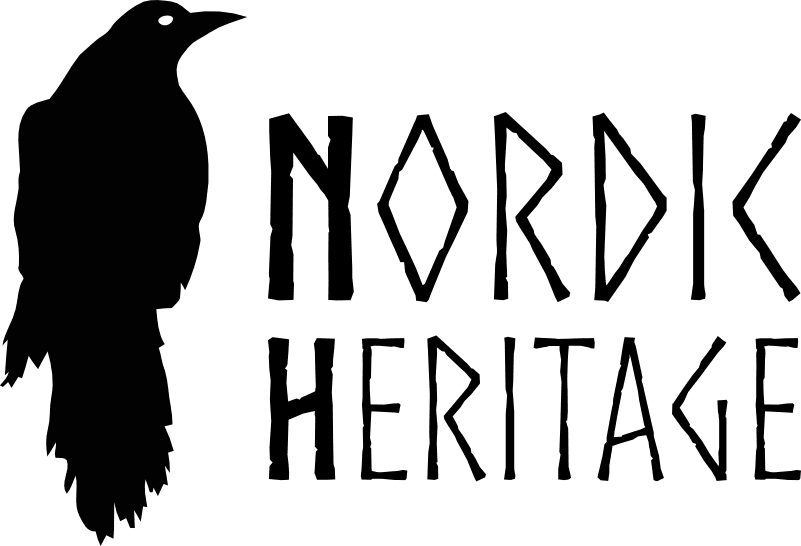
Nordic Tales – the world full of mystical adventures where trolls and fairies guard the snowy forests, eerie monsters roam the open sea. Journeys to the edge of the world to prove you know no fear.
These are the stories we like to hear over and over.
Odin’s Ravens – Huginn and Muninn
Two ravens sit on his (Odin’s) shoulders and whisper all the news which they see and hear into his ear; they are called Huginn and Muninn. He sends them out in the morning to fly around the whole world, and by breakfast they are back again. Thus, he finds out many new things and this is why he is called ‘raven-god’ (hrafnaguð). [Dictionary of Northern Mythology]
Why was there such a longstanding and intense connection between Odin and the raven, of all species? The answer largely has to do with Odin’s roles as a god of war and death. Ravens, as carrion birds, were present when a battle took place, and were some of its prime beneficiaries. To slay someone in battle was, in a sense, to give the ravens a gift.
Brave explorers and great storytellers
Although the Vikings were originally thought of as dirty savage people the many Viking artefacts that have been found disprove this. They were skilled weapon makers taking advantage of remote monasteries in order to plunder and steal but they were also explorers, settlers and colonists who bought well run governments to their new lands.
Vikings took great pains with their appearance and cleanliness and were also talented artists and architects enhancing the culture of the lands where they settled. They introduced the idea of towns to remote places such as in Ireland and brought trade and industry not only to large towns but also to places such as the Scottish Islands giving people the chance to trade or learn new skills.

The city of York grew in Viking times to become one of the largest and most important cities in northern Europe. Archaeologist have found evidence of Viking craft making from the silver, gold, lead and copper found there as well as many other artefacts.
Many Viking words have found their way into the English language such as husband, egg, bag, ball, law, knife, happy and hundreds of others. Many places names have their origins in Viking times such as those ending in ‘by’ (farm or village), ‘toft’ (house or plot of land), ‘thorpe’ (a farm) and ‘kirk’ (a church).

As well as being skilled ship builders they were brave explorers who discovered new lands. The remains of Viking settlements, burial sites and carvings as well as the sagas they wrote have helped us to understand the kind of lives they led and something about the real people who lived at this time.
The Vikings played an important part in spreading skills, ideas and cultures across different countries. Without them the world today would have been a very different place.

